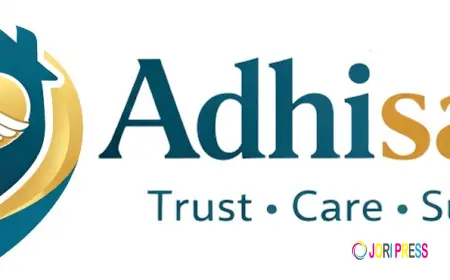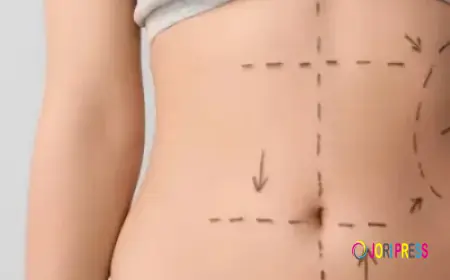Case Study: How One Patient Beat Lisp from Braces
When 24-year-old Amina began her orthodontic journey with lingual braces, she had one major concern—her speech. She had read online forums and watched countless videos, all posing the same worrying question: Do lingual braces cause a lisp? The idea of having her speech affected during meetings at work or casual conversations with friends made her hesitant to begin treatment. However, with the right guidance and persistence, Amina managed to not only fix her smile but regain her confidence in speaking—lisp-free. This case study explores her journey, how she managed her speech challenges, and how others can do the same.

Understanding the Concern: Do Lingual Braces Cause a Lisp?
Lingual braces are placed behind the teeth, making them invisible from the outside. While this offers an aesthetic advantage, the placement can initially interfere with the tongue’s natural movement, especially when forming certain sounds.
So, do lingual braces cause a lisp? The answer is: sometimes, yes—but temporarily. Many patients experience a mild lisp in the early stages as the tongue adjusts to the new structure in the mouth. For some, it’s barely noticeable. For others, like Amina, it can be a frustrating hurdle—but not an impossible one.
Patient Background: Why Amina Chose Lingual Braces
Amina had moderate crowding in her upper teeth and slight spacing in her lower teeth. Being in a client-facing job, she didn’t want visible brackets affecting her confidence. Her orthodontist suggested lingual braces due to their discreet nature.
Despite her excitement, her first question at the consultation was, “Do lingual braces cause a lisp?” Her orthodontist assured her that while some patients experience minor speech disturbances, most adapt within a few weeks.
The First Few Weeks: Adapting to Lingual Braces
After getting her braces fitted, Amina did experience a noticeable lisp—especially with “s,” “sh,” and “z” sounds. She described it as feeling like her tongue was hitting a wall where there used to be open space.
Here’s what Amina did to overcome it:
1. Speech Therapy Exercises
Her orthodontist recommended simple exercises like:
-
Repeating difficult sounds: “s,” “sh,” and “z”
-
Reading aloud daily
-
Practicing tongue placement using mirror feedback
These exercises helped retrain her tongue and muscle memory.
2. Slowing Down Her Speech
Amina noticed that speaking more slowly gave her tongue time to adjust to the new space restrictions. Over time, this conscious effort helped her eliminate her lisp naturally.
3. Wax Application
During the initial few days, she used orthodontic wax on areas that felt sharp or intrusive. This reduced discomfort, which also minimized tongue irritation and made speech less affected.
Timeline: How Long Did It Take to Lose the Lisp?
In Amina’s case, the lisp began to fade significantly within the first 2 weeks. By the end of the first month, only close friends noticed a slight difference—and by the 6th week, it was completely gone.
The critical takeaway here is consistency. The more she practiced speaking and followed her orthodontist's guidance, the quicker her speech returned to normal.
Orthodontist’s Perspective: Is Lisp from Lingual Braces Unavoidable?
We interviewed Dr. Hina Malik, Amina’s orthodontist, who weighed in on the common question, Do lingual braces cause a lisp?
“It’s a common side effect, but not a permanent one. In my experience, over 80% of patients overcome the lisp within the first month. The key is patient cooperation, good oral hygiene, and regular practice.”
She added that modern lingual braces are designed with slimmer profiles than earlier models, reducing the likelihood of severe speech disruption.
Benefits of Lingual Braces Beyond Aesthetics
While some patients worry, Do lingual braces cause a lisp?, many find that the long-term benefits outweigh the temporary speech adjustments. These include:
-
Completely invisible alignment
-
Effective correction of complex dental issues
-
No risk of staining the front teeth (common with traditional braces)
-
Increased self-confidence during treatment
Amina reported feeling more confident even while undergoing treatment because no one could see her braces.
Aftercare: Post-Treatment Adjustments
Once Amina’s treatment concluded after 18 months, she transitioned to a clear retainer worn mostly at night. She didn’t experience any speech issues post-treatment. Her orthodontist recommended:
-
Continued speech practice for another month (just in case)
-
Regular dental hygiene to maintain results
-
Wearing retainers as directed to prevent relapse
Lessons from Amina’s Case
Here are key takeaways for anyone asking, Do lingual braces cause a lisp? and considering this orthodontic option:
-
Yes, but it’s temporary: A lisp may occur, but it typically fades within a few weeks.
-
Speech can be trained: Practice makes perfect—literally. Speech therapy exercises are extremely effective.
-
Invisible doesn’t mean inconvenient: Lingual braces offer both aesthetic and functional benefits.
-
Support matters: A helpful orthodontist and patient community can make the adjustment easier.
FAQs: Common Patient Queries
Q: How severe is the lisp with lingual braces?
Most patients report mild to moderate changes. Severe cases are rare and usually resolve with consistent speech exercises.
Q: Can I speed up lisp correction?
Yes—reading aloud, practicing problem sounds, and staying hydrated help speed up tongue adaptation.
Q: Should I choose lingual braces if my job involves public speaking?
Absolutely. With a brief adaptation period and the right practice, you’ll maintain both your appearance and articulation.
Final Thoughts: Lisp Today, Confidence Tomorrow
Amina’s journey proves that while the question “Do lingual braces cause a lisp?” is valid, it shouldn’t discourage you from choosing a discreet and highly effective orthodontic treatment. With determination, expert care, and a little patience, anyone can beat the temporary speech challenges and smile with confidence—during and after treatment.
What's Your Reaction?
 Like
0
Like
0
 Dislike
0
Dislike
0
 Love
0
Love
0
 Funny
0
Funny
0
 Angry
0
Angry
0
 Sad
0
Sad
0
 Wow
0
Wow
0

















































